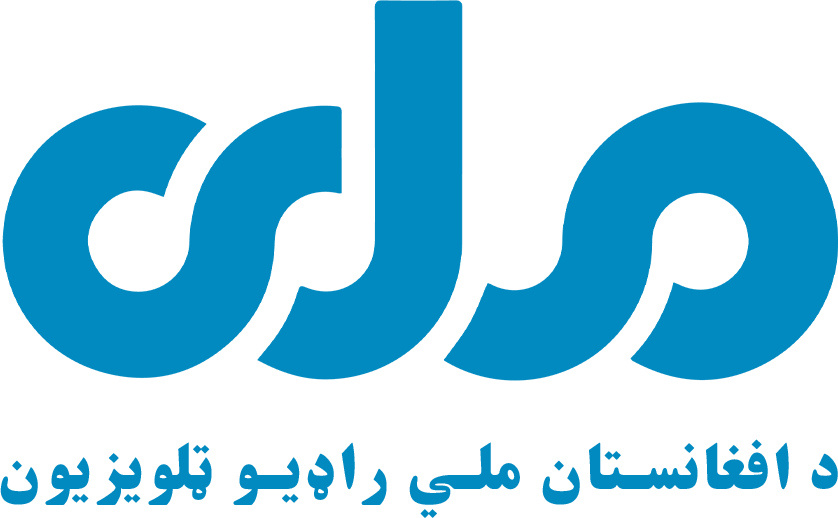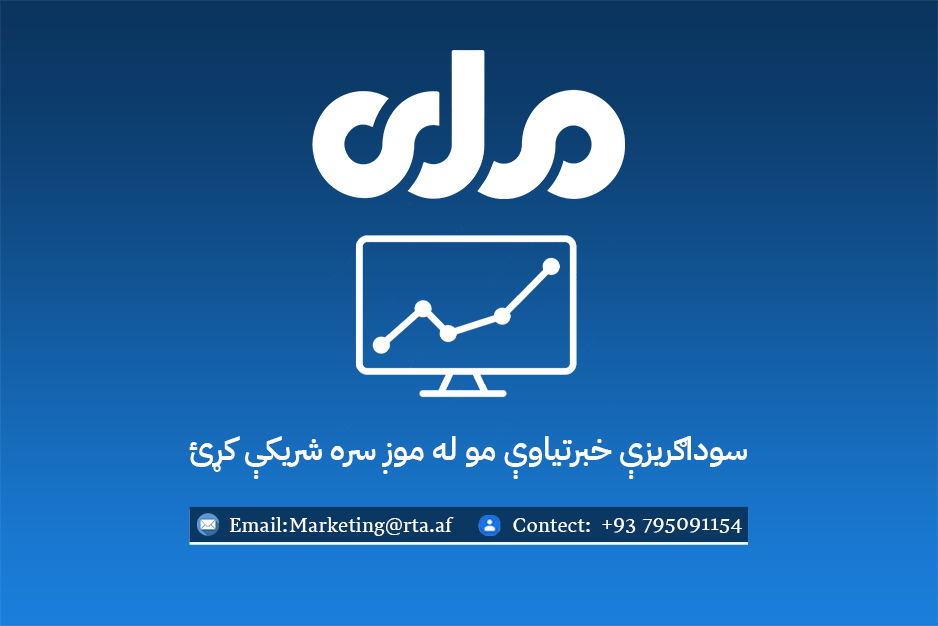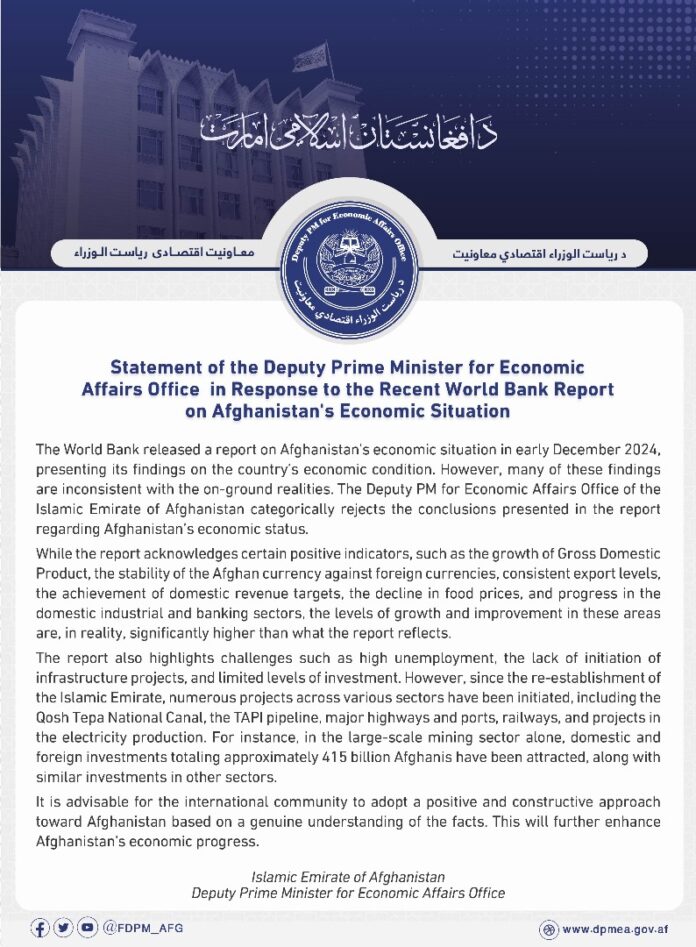The World Bank released a report on Afghanistan’s economic situation in early December 2024, presenting its findings on the country’s economic condition.
However, many of these findings are inconsistent with the on-ground realities.
The Deputy PM for Economic Affairs Office of the Islamic Emirate of Afghanistan categorically rejects the conclusions presented in the report regarding Afghanistan’s economic status.
While the report acknowledges certain positive indicators, such as the growth of Gross Domestic Product, the stability of the Afghan currency against foreign currencies, consistent export levels, the achievement of domestic revenue targets, the decline in food prices, and progress in the domestic industrial and banking sectors, the levels of growth and improvement in these areas are, in reality, significantly higher than what the report reflects.
The report also highlights challenges such as high unemployment, the lack of initiation of infrastructure projects, and limited levels of investment.
However, since the re-establishment of the Islamic Emirate, numerous projects across various sectors have been initiated, including the Qosh Tepa National Canal, the TAPI pipeline, major highways and ports, railways, and projects in the electricity production. For instance, in the large-scale mining sector alone, domestic and foreign investments totaling approximately 415 billion Afghanis have been attracted, along with similar investments in other sectors.
It is advisable for the international community to adopt a positive and constructive approach toward Afghanistan based on a genuine understanding of the facts. This will further enhance Afghanistan’s economic progress.


